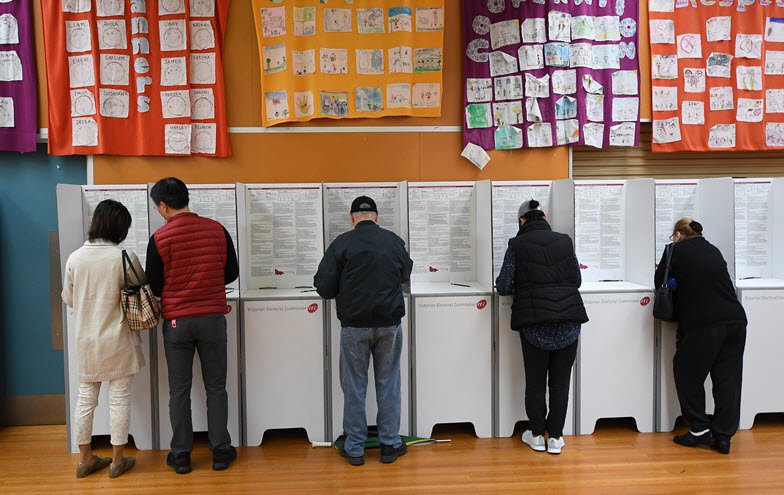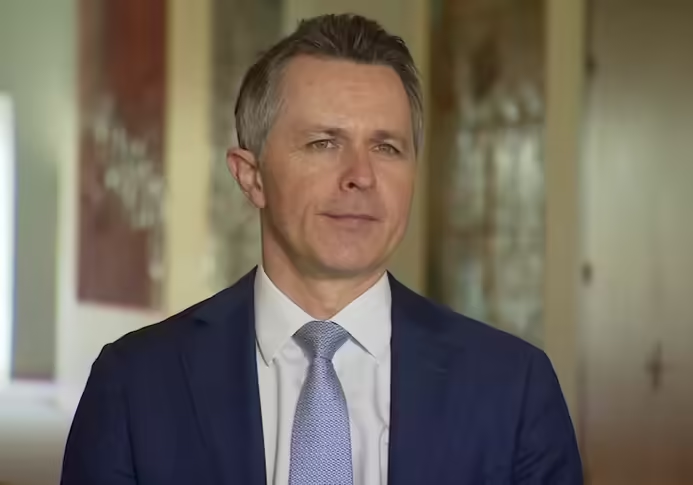Australia/Israel Review
Editorial: Celebrating two democratic elections
Apr 23, 2019 | Colin Rubenstein

Israel just completed its general election on April 9. Australia is set to follow Israel to the polls on May 18. This coincidence is a reminder of the precious democratic values and practices the two nations share in common.
Israel’s 21st election as a nation saw many issues canvassed, but the core election question was: should Binyamin “Bibi” Netanyahu remain leader of the nation after a decade of continuous governance?
The outcome was clear: Netanyahu will resume as Prime Minister and be tasked by President Reuven Rivlin with forming a coalition government. By July, he will have become the longest-serving PM in Israeli history, surpassing the 13 years in office of Israel’s founder David Ben-Gurion.
Netanyahu’s fifth election victory comes despite a very robust challenge from the Blue and White Party, led by an alliance of three former IDF Chiefs of Staff with Yesh Atid party chairman Yair Lapid. Netanyahu’s Likud received only one more seat than Blue and White, yet the strong showing by religious and small right-wing parties mean only Bibi can form a governing coalition.
However, coalition negotiations are never simple in Israel, and it is likely to be weeks before a new government is sworn in.
Moreover, the impending corruption indictments against Netanyahu in three separate cases, while not losing him the election, may leave him vulnerable in the not too distant future.
One controversy from the election campaign needs to be put to rest. Hysterical newspaper headlines blaring that Netanyahu promised to annex the West Bank if re-elected are off the mark – he only vaguely promised to seek to at some stage “gradually” apply Israeli sovereignty to West Bank settlements. These makeup less than 2% of the land area of the West Bank.
Moreover, they were said in the heat of an election campaign, while Netanyahu has a clear record of opposing precipitous moves, including annexation proposals. His actual promise was so vague as to be meaningless, and could even mean Israeli sovereignty over settlements would be part of an eventual peace deal.
Serious efforts to impose any annexations by the new Israeli Government are unlikely – especially as the Trump Administration is expected within months to release its “Deal of the Century” Israeli-Palestinian peace plan, and Netanyahu will not want to anger the US President by preempting it.
Meanwhile, Australians face their own imminent, fateful election decisions.
While this will be a hard-fought election campaign, it is worth pausing to remind ourselves that, as in Israel, our democracy is robust and united around many unspoken areas of national consensus, shared values and bipartisan cooperation.
The 12 questions on policy areas of special interest to the Australian Jewish community, submitted to the Coalition and Labor as part of a long-standing AIR tradition, are the centrepiece of this edition and are a reminder of that underlying consensus.
While both parties predictably denounce the policies and record of the other, what is notable are significant commonalities – on Australian multiculturalism, on combating terrorism, on communal security for Jewish and other ethnic institutions, and on confronting racism.
It is particularly heartening to observe that past divisions and confusion over section 18C of the Racial Discrimination Act have been superseded. This is a piece of legislation that, despite the continuing misconceived campaign against it by some conservative commentators, remains vital to our largely harmonious multicultural society and, in a way that carefully minimises any negative impacts on free speech, only limits the most blatant and destructive forms of racial vilification and incitement, so often a precursor to violence.
Other shared positions between the two parties are more disappointing – particularly on Iran and Hezbollah. Both major parties continue to support the flawed Iran Nuclear Deal, or JCPOA, despite its obvious shortcomings, although they do pledge to push back on Iran in other areas, including missile and nuclear proliferation and terrorism. Moreover, neither party supports designating Hezbollah, Iran’s Lebanese terrorist proxy, as a terrorist organisation in its entirety, even though the US, UK, and Canada have done so with convincing justification.
Both parties also pledge to continue funding the United Nations Relief and Works Agency (UNWRA), with Labor even promising to increase funding. Yet UNWRA is a major contributor to perpetuating the conflict by extending perpetual refugee status to the descendants of 1948 Palestinian refugees and propagandising for a non-existent “Palestinian right of return,” and has a record of inciting violence against Israel through its institutions.
Positively, there is strong bipartisan support for deepening the Australia-Israel relationship and promoting and facilitating a two-state outcome. Yet there are significant differences of substance and detail between the Coalition and Labor on recognition of Jerusalem as Israel’s capital; the circumstances under which Australia should recognise the currently non-existent state of Palestine; and also on UN voting. We urge readers to examine the answers to the questions closely to understand all these nuances.
There are also differences on preferencing to minor parties. While the Coalition has opted to make a principled decision to preference Pauline Hanson’s One Nation below Labor, disappointingly, Labor still appears set to advantageously preference the anti-Israel, anti-Western and often irresponsible and extremist Greens in some contests.
Finally, the West Australian Labor party has been hit by a scandal over extreme and conspiratorial anti-Israel comments by since withdrawn candidate Melissa Parke and Senator Sue Lines – including comments about the supposedly illegitimate and dangerous power of the so-called “Israel lobby”. The Federal Labor leadership reacted quickly and appropriately in repudiating Parke for her inflammatory comments that did not represent Labor’s policy. Similarly, one assumes they also reject any implication that Jewish Australians have no legitimate right to participate in policy formation on the Middle East or Israel, or suggestions that the fine Labor tradition of support for the justice of Israel’s cause stems from unworthy motives. Such claims are both insulting and insidious and should have no role in our national debate.






